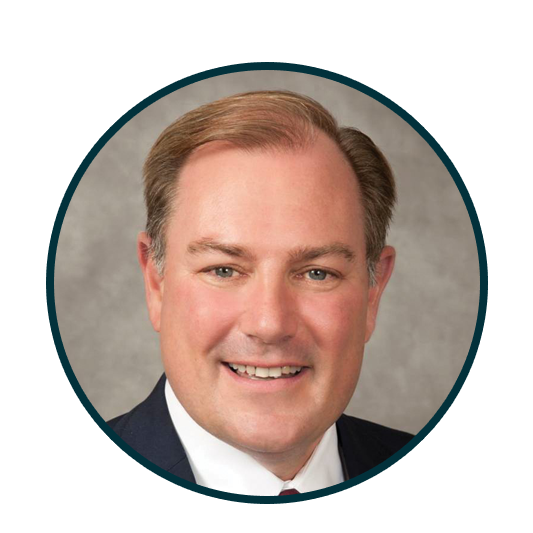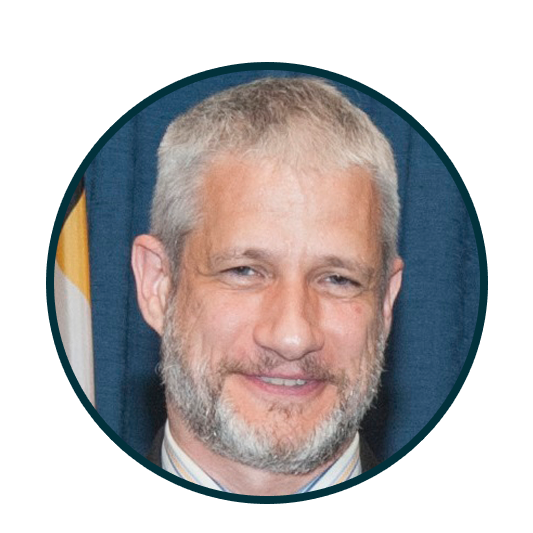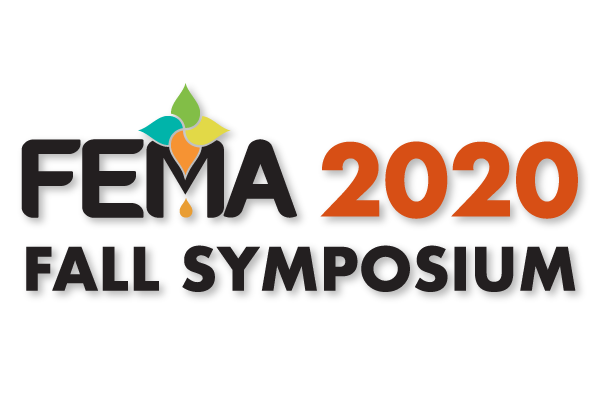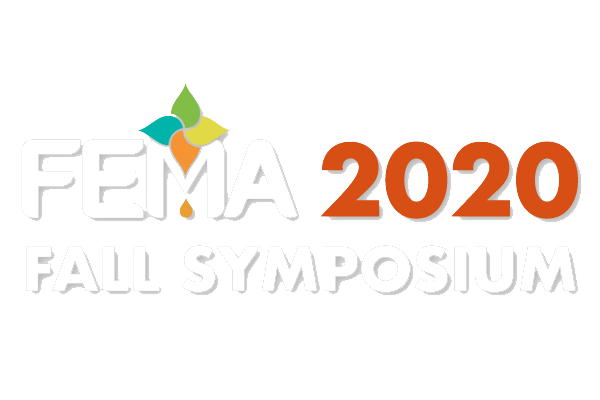SPEAKERS
Exploring the Boundaries of American Cuisine and Identity in Contemporary America
Our definition of what is American food is changing partly from immigration demographics, migration trends, the foodie revolution, and social media. Edward talks about how we can expand our definitions of American food which can lead to an open-minded discussion about who we are as Americans.

Edward Lee
Award-Winning Chef, Author, and Culinary Director of Succotash
Click here for full bio
Chef Edward Lee is a Korean-American who grew up in Brooklyn, trained in NYC kitchens, and has spent the better part of a decade honing his vision to become a progressive chef, award-winning author, and owner of four restaurants around the country.
Chef Lee is the chef/owner of 610 Magnolia, MilkWood, and Whiskey Dry in Louisville, KY and the Culinary Director for Succotash in National Harbor, Maryland, and Penn Quarter, DC. Chef Lee was the recipient of the 2019 James Beard Foundation Award for Writing for his book Buttermilk Graffiti: A Chef’s Journey to Discover America’s New Melting Pot Cuisine. Lee has also been a six-time finalist for the James Beard Foundation Award for Best Chef: Southeast. Among many accolades, Food & Wine Magazine named 610 Magnolia one of the country’s most important restaurants of the past 40 years and Succotash was awarded a Bib Gourmand by The Michelin Guide DC. He also partnered with Trey Zoller to create a luxury small batch bourbon called Chef’s Collaboration Blend with Jefferson's Reserve, sold wherever fine whiskey is sold.
Widely acknowledged for his culinary expertise, Chef Lee appears frequently in print and television, and his writing has been featured in The New York Times, Esquire, Food & Wine and many other national publications. He was nominated for a daytime Emmy for his role as host of the Emmy-winning series, Mind of Chef, on PBS. He also wrote and hosted a feature documentary, Fermented, exploring how the ancient process of fermentation is used in modern cuisine.
An accomplished author, Chef Lee’s cookbook Smoke & Pickles: Recipes and Stories from a New Southern Kitchen, chronicles his unconventional journey from the kitchens of Brooklyn to becoming a lauded Southern chef. In his most recent book is Buttermilk Graffiti, Lee travels the country in search of America’s new melting-pot cuisine and exploring the people behind the food.
Chef Lee’s philanthropic work includes the Lee Diversity Scholarship to support the Southern Foodways Alliance Oral History Workshop. In 2018, he launched The LEE (Let’s Empower Employment) Initiative, which works to bring more diversity and equality to the restaurant industry.
Consumer Opinion Panel: Perspectives on Flavors
Join Stephanie Mattucci for an engaging and thought-provoking discussion on flavor trends. This session will explore what consumers are looking for when it comes to flavor and what the industry needs to know about the larger trends influencing consumers’ decisions. The session includes a panel discussion where consumer participants will tell us what they think about flavors and what they look for in new taste sensations.

Stephanie Mattucci, CFS
Associate Director, Food Science, Mintel
Click here for full bio
With over 10 years of experience in the food industry, Stephanie brings a food science background to her work at Mintel. She is responsible for analyzing and providing insight on ingredients and nutrition trends, regulations and food science innovations.
Stephanie gives insightful and engaging presentations for clients around the world at workshops, trade shows, and other events. Stephanie joined Mintel in 2013 and is based in Chicago. Prior to Mintel, Stephanie worked as a food scientist at a food ingredient company.
She has a bachelor's degree in Food Science from the University of Wisconsin-Madison and earned her Certified Food Scientist credential from the Institute of Food Technologists in 2016.
COVID-19 Supply Chain Impacts
Institute for Supply Management CEO Tom Derry reveals research-driven insights from multiple rounds of ISM surveys on how the pandemic has impacted modern global supply chains. He’ll highlight the critical experience of food supply chains and how the profession is evolving based on lessons learned.

Tom Derry
CEO, Institute for Supply Management
Click here for full bio
Tom Derry is Chief Executive Officer of the Institute for Supply Management® (ISM®), with more than 30 years of experience in leadership and general management roles for public and private companies, and in the not-for profit sector. He has executed turn-arounds at the corporate and business-unit level through a variety of means, including acquisitions, divestitures, restructuring, and business process re-engineering.
As CEO of the Institute for Supply Management, Tom has a unique vantage point to observe major macroeconomic trends and the development of global supply chains through his daily contact with Fortune 500 chief procurement officers and chief supply chain officers, with government agencies and NGOs in the United States and abroad, and with leading academics. Tom has been interviewed on CNBC, Bloomberg Television, quoted in The Wall Street Journal, The New York Times, and dozens of other business publications. Tom has represented ISM in meetings with the White House Council of Economic Advisers, the National Security Council, the Federal Reserve System Board of Governors, and the U.S. Small Business Administration.
At ISM, Tom has overseen an increase in revenues, a reduction in costs, the introduction of new revenue streams, and the launch of new product lines. As Chief Operating Officer of the Association for Financial Professionals, Tom oversaw strategy development and execution. Tom completed two cross-border acquisitions, which became for-profit subsidiaries of AFP. He oversaw all AFP staff in London, UK and Bethesda, MD.
As General Manager of the Business Intelligence unit of LexisNexis, team led a 40-person acquisition integration team, which completed the integration ahead of plan and under budget. He also executed the strategic divestiture of another LexisNexis unit, and implemented new technologies, including web-crawling bots, to re-engineer data collection and quality processes for LexisNexis’ business data unit.
Tom is a 1986 graduate of Georgetown University’s Walsh School of Foreign Service (B.S., Foreign Service).
Plain Vanilla? Why Vanilla Labeling is Anything But
Vanilla continues to be one of the most popular flavors in the United States and as vanilla flavorings are the only flavorings subject to a federal standard of identity, proper labeling of vanilla flavorings and the foods to which they are added has never been more important. During this session, we will set the stage by exploring the interplay between the general flavor labeling regulations and the vanilla standard of identity and then reviewing FDA’s position on key issues of vanilla product labeling. Then, we will turn to the recent federal class action litigation challenging the vanilla labeling of finished food and beverage products, probe the trends and trajectory of that litigation and consider what this litigation might mean for the future.

Joanna Drake
General Counsel, FEMA
Click here for full bio
Joanna Drake serves as General Counsel to FEMA. With more than a decade of flavor industry experience, her work with the association has covered a variety of regulatory and legal issues, including flavor and finished product labeling. Ms. Drake has given presentations to FEMA and other organizations on the current labeling implications of flavor, anticipated federal administrative action regarding “natural” labeling and the litigation landscape involving ingredient and food labeling. Prior to joining FEMA, she served as Assistant Counsel to WILD Flavors, Inc., where she worked on a variety of transactional issues and provided strategic legal counsel on product labeling and compliance matters.
The Petrol-Note in Riesling Wine: An Update on Pathways of Formation and Measures for Prevention
1,1,6-Trimethyl-1,2-dihydronaphthalene (TDN) is known since the 1980s to cause the petrol-note in Riesling wines. Initially mainly in wines from the Southern hemisphere (e.g. Australia, South Africa) high concentrations of TDN were detected. Due to global warming, the TDN problem is today also apparent in the Northern hemisphere and an increasing number of TDN-tainted table and sparkling wines is reported in the US and Europe. Reasons for the increasing levels of TDN are only partly understood, but it is assumed that climatic changes result in an enhanced degradation of carotenoids in grapes. This gives rise to a higher formation of non-volatile carotenoid metabolites which in turn will form TDN during the storage of wine.
This lecture will summarize the present knowledge on aroma precursors in wine with a special focus on TDN formation. To cope with the complex formation of TDN in wine, a multi targeted approach must be implemented along the production process of table and sparkling wines in order to keep TDN concentration below its sensory threshold.

Prof Dr. Peter Winterhalter
Institute of Food Chemistry, Technische Universität Braunschweig
Click here for full bio
Peter Winterhalter is head of the Institute of Food Chemistry at Technische Universität Braunschweig (TUBS), Germany. He graduated from University of Karlsruhe and obtained his Ph.D from Würzburg University in 1988. In 1989 he visited as a postdoctoral fellow the Australian Wine Research Institute, Adelaide, before returning to Würzburg University as a Research Fellow. In 1995 he was appointed professor of food chemistry at the University of Erlangen-Nürnberg before finally moving to TUBS as a full professor in 1997 where he was also dean of the Faculty of Chemistry and Pharmacy. His research activities focus on natural products/food chemistry and include aroma precursors, countercurrent chromatography, food authentication, natural pigments, and wine research. He is board member of the research association of the German food industry (FEI) and head of the scientific advisory board of FEI, furthermore vice-president of Food & Health North Germany and also vice-president of the Internationals Society of CCC/CPC. He is member in the scientific advisory boards of several journals and has published approximately 340 scientific papers and six books.
COMMITTEE SPEAKERS

Peggy Hoffman
President, Mariner Management & Marketing
Monday, November 2, 11:30AM – 12:30PM ET Presentation during the Membership Services Committee Meeting
Unlocking Your Value as a FEMA Member
We’ll start this conversation with “why” and discover “how” as we explore just how you and your company can boost its connection with FEMA and peers throughout the association. Let’s look at unlocking the value of being actively involved in FEMA in a way that benefits you and your company.
Click here for full bio
Peggy M. Hoffman, FASAE, CAE, has unlocked the value of being a member in business associations for herself and thousands of others through her research, training and experience. She developed the member engagement continuum featured in ASAE, the Center for Leadership in Associations, upcoming book on association management, and led the industry’s research on volunteering and member engagement. As president of Mariner Management, an association management company, she works with nonprofits – and their members – in unlocking member value. She is active in her professional association, ASAE, and loves to help others find the value in membership that she has. She began her association experience at the Retail Bakery Association where she discovered many new flavors and so welcomes the opportunity to meet the people behind the flavors. You can stay in touch with Peggy on LinkedIn, Twitter (@peggyhoffman) or through her website at www.MarinerManagement.com. Check out her blog post Volunteering for Your Association Has Benefits.

Nadia Berenstein, Ph.D.
James Beard award-winning journalist, flavor historian, and part-time faculty at the New School for Social Research in New York City
Monday, November 2, 12:30PM – 1:30PM ET Presentation during the Advocacy & Awareness Committee Meeting
What We Talk About When We Talk About Flavors: Reporting on the Flavor Industry in a Chemophobic America
Proprietary technologies, customer obligations, public chemophobia: it’s no surprise that flavor and fragrance companies are often reluctant to communicate with journalists. But industry reticence comes at a cost. Without the expert voices of people who work in flavors, mainstream reporting on flavor additives can be riddled with inaccuracies — and sometimes even promote fear-mongering and false information about health and safety.
As a journalist and historian who has written extensively about the flavor industry, Nadia Berenstein will bridge the divide between the industry and its aspiring chroniclers. She’ll address some of the challenges of writing about food and flavor technologies, and offer tips for building narratives about flavor that are both scientifically accurate and engaging to a lay audience. Finally, she’ll share some insights into the kinds of stories about flavors that editors and readers are eager to read.
Click here for full bio
Nadia Berenstein is a James Beard award-winning journalist, flavor historian, and part-time faculty at the New School for Social Research in New York City. A graduate of Harvard University, she holds a Ph.D. in the History and Sociology of Science from the University of Pennsylvania. Her dissertation told the story of the growth of the flavor industry and the science and technology of flavor design; her ongoing research investigates how society, culture, and technology inform the experience of sensory pleasures and the shape of consumer desires, from food to fashion. Her writing has appeared in Forbes, New Food Economy, MUNCHIES, Food & Wine, and Serious Eats, among other places. She has been a featured guest on NPR’s Science Friday and multiple podcasts. Prior to graduate school, she served as chief speechwriter for Planned Parenthood, and worked as head writer for M+R, a political communications and strategy firm in Washington D.C. She is currently developing a book based on her dissertation, tentatively titled Flavor: An Artificial History. You can read more about her research about flavor and food history on her blog, "Flavor Added," http://nadiaberenstein.com/blog/ and follow her on Twitter @thebirdisgone.

Laura Shumow
Executive Director, American Spice Trade Association
Wednesday, November 4, 11:30AM – 1:00PM ET Presentation during the Science Affairs Committee Meeting
Advancing Agricultural Tolerances in Spice Supply Chains
Learn about the American Spice Trade Association’s (ASTA) initiative to provide more crop protection tools for spice farmers around the world and reduce regulatory and supply chain risks for importers. ASTA is working to harmonize U.S. agricultural chemical regulations with global standards by expanding the availability of new tolerances for imported spices. This session will provide an overview of the basic regulation of pesticides in the U.S., how to streamline tolerance applications, as well as an update on the new tolerance petitions that ASTA has submitted to date. Additionally, the presentation will address how ASTA is collaborating with global partners to educate spice farmers on best agricultural practices to promote safety and compliance.
Click here for full bio
Laura Shumow has been with the American Spice Trade Association (ASTA) since 2018. She works with the ASTA Board of Directors to set the strategic direction of the association and with the ASTA staff to ensure the goals are met.
Prior to joining ASTA, Laura worked at the National Confectioners Association as the vice president of scientific and regulatory affairs. In this role, she also oversaw the Chocolate Council, a decision making body that handles issues specific to the cocoa and chocolate industry. She has a strong background in domestic and international regulatory issues, and a proven track record of success addressing challenges related to the supply chains of food ingredients sourced from developing countries.
Laura received her master’s of health sciences from the Johns Hopkins Bloomberg School of Public Health and bachelor’s degree in food science from the University of Wisconsin. She is an active member of several professional societies, including the Institute of Food Technologists, where she serves as chair of the Food Laws and Regulations Section.

Dan Mellon, Ph.D.
Acting Deputy Division Director and Pharmacology Toxicology Supervisor
Division of Pharmacology/Toxicology for Neuroscience
FDA Center for Drug Evaluation & Research (CDER) Office of New Drugs
Thursday, November 5, 12:30 – 2:30PM ET Presentation during the Regulatory Affairs Committee Meeting
A CDER Pharmacology Toxicology Perspective on the Safety Evaluation of Flavor Excipients
Dr. Mellon is a toxicologist who has been involved in the evaluation of many flavor ingredients and will provide an overview of CDER’s policies and procedures as they impact the review of flavors for use in pharmaceutical products.


